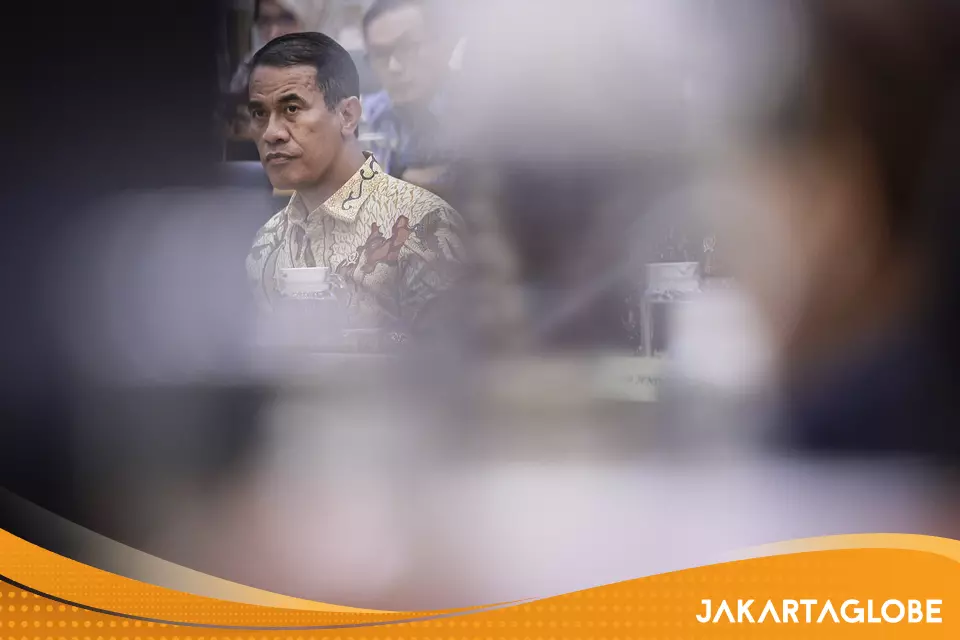Headline: Indonesia Streamlines Dairy Cow Imports for School Meal Plan
Article:
Jakarta – In a strategic move to support President Prabowo Subianto’s free school meal initiative, Indonesia is set to simplify the import process for dairy cows. Agriculture Minister Andi Amran Sulaiman announced this plan as the government prepares to launch a nationwide program offering nutritious meals to school-age children starting in January 2024. Central to this initiative is ensuring the availability of quality dairy products, crucial for bolstering the nutritional content of meals provided to students.
Enhancing Nutritional Standards
The Indonesian government recognizes the importance of high-quality milk in its upcoming free meal program, which aims to benefit millions of schoolchildren across the archipelago. Minister Amran emphasized the government’s commitment to facilitating dairy farmers in acquiring imported cows, stating, “We will not make it difficult for dairy farmers to import cows. This is all to produce higher quality milk.” His comments came during a recent business visit to the East Javan regency of Pasuruan, where he underscored the initiative’s role in raising nutritional standards for the nation’s youth.
Funding and Import Plans
To further support this initiative, the Ministry of Agriculture is set to engage with regional banks and cooperatives to explore potential funding schemes for dairy cow imports. The initiative is ambitious; the Indonesian government intends to import around 1 million dairy cows from global suppliers including Australia, Brazil, New Zealand, the United States, and Mexico by 2029. This significant investment is part of Indonesia’s broader plan to meet the projected national fresh milk demand, which is expected to reach 8.5 million tons within six years.
Meeting Future Demand
Of the projected milk demand, approximately 4.9 million tons will cater to regular consumption, while the remaining 3.6 million tons are earmarked for Prabowo’s free meal program, a critical component in addressing the national stunting crisis among children. During his campaign, President Prabowo committed to providing meals for all Indonesian schoolchildren, indicating the administration’s focus on tackling this pressing public health issue.
Pilot Programs Underway
To gauge the effectiveness of this initiative, the government has conducted trial runs of the meal program in several schools. These trials have typically included traditional Indonesian staples such as rice, chicken, vegetables, fruit, and milk, providing essential nutrition to students. The response has been positive, with local communities expressing gratitude for the government’s proactive approach to child nutrition.
Broader Implications for the Dairy Industry
This initiative not only aims to improve child nutrition but also seeks to revitalize the local dairy industry. By enhancing the quality of milk production through imported dairy cows, Indonesia hopes to establish a more sustainable and productive agricultural sector that can meet both domestic and export demands.
Engaging the Community
As this program gains momentum, it invites participation and feedback from various stakeholders, including local dairy farmers, educational institutions, and health organizations. The government is keen to create a collaborative ecosystem that encourages innovation and sustainability in the agricultural domain.
Looking Ahead
The success of the free school meal program could set a precedent for future governmental initiatives aimed at enhancing public health and nutrition in Indonesia. The strategic importation of dairy cows and the accompanying increase in milk production could not only support the meal program but also lead to economic growth and job creation within the dairy sector.
In your opinion, how do you think this initiative will impact the health and nutrition of Indonesian schoolchildren? Share your thoughts in the comments below!
For further insights on Indonesia’s agricultural policies and their implications, visit Shorty-News and explore relevant articles that provide a deeper understanding of food security, nutrition, and public health initiatives. For external sources on innovations in food programs, check out TechCrunch and The Verge.
This article adheres to ethical journalism practices, ensuring all facts presented are accurate and relevant. The dialogue set forth encourages community engagement, fostering discussion around significant national policies impacting health and nutrition.


